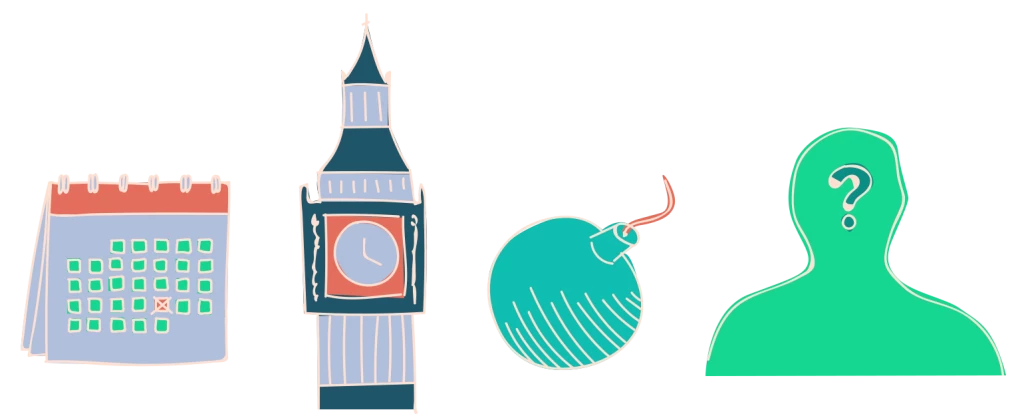The collection of accurate, detailed, and timely intelligence supports critical law enforcement decision-making. Intelligence generates investigative leads which aim to prevent or pursue criminal activity at a local, regional, national, and international level.
One way of collecting intelligence is through Human Intelligence (HUMINT), where information is elicited through human sources, such as Covert Human Intelligence Sources (CHIS).
CHIS (i.e. authorised informants) play a significant role within HUMINT and are defined in the United Kingdom (UK) within section 26(8) Regulation of Investigatory Powers Act 2000 (RIPA).
For the purposes of RIPA, a person should be considered to be a CHIS when they:
- establish or maintain a personal or other relationship with a person for the covert purpose of facilitating the doing of anything falling within paragraph (b) or (c)
- covertly use such a relationship to obtain information or to provide access to any information to another person
- covertly discloses information obtained by the use of such a relationship, or as a consequence of the existence of such a relationship.
Moreover, there are two forms of CHIS, relevant sources (i.e. an undercover officer) who hold an office, rank, or position with one of a specific list of law enforcement agencies and CHIS informers, who differ from relevant sources as they are civilian informants. My research covers both forms of CHIS and was carried out in three phases.
Phase 1: Interviews with Source Handlers
In Phase 1 I gained access to a range of UK Counter Terrorism Dedicated Source Units (CTDSU) and interviewed 24 Source Handlers about their perceptions of rapport and the interviewing techniques they employ during interactions with CHIS.
Rapport was perceived as essential, especially with regards to maximising the opportunity for intelligence elicitation. Source Handlers provided a range of rapport strategies (including effective communication, empathy and welfare, regular contact, and a reciprocal and professional relationship) while highlighting the importance of establishing, and maintaining, rapport.
The majority of Source Handlers believed rapport could be trained to some degree. While rapport was not perceived exclusively as a natural skill, Source Handlers commonly thought some natural attributes are required to build a rapport that could then be refined and developed through training and experience.
Five themes emerged from my interviews with Source Handlers about the interviewing techniques they employ with CHIS:
- Interviewing versus debriefing – Differences in the legislative framework and perceived formality of the interactions, with similarities in the cognitive techniques used and aims to gather reliable information
- The PEACE model in intelligence interviews – A lack of planning was discussed as impacting upon the efficiency of interviewing informants
- The importance of effective communication – The importance of an uninterrupted free recall, appropriate questioning strategies and probing the information gathered
- Source Handlers’ use of cognitive retrieval techniques – While the use of a free recall and reinstatement of context was reported as frequently used, a minority of Source Handlers reported that they have never used cognitive interviewing techniques.
- Source Handler interview training – An apparent lack of exposure to psychological research-based techniques was evident from the current participants’ comments.
The commonalities between interviewing and debriefing highlighted by themes 2, 3, and 4 provided support for the transferability of investigative interviewing research and practices into the collection of Human Intelligence (HUMINT).
Finally, Source Handlers highlighted a need for additional training concerning elicitation techniques.
With reference to the identified themes from the present study, it is argued that police officers who are responsible for gathering HUMINT may benefit from further professional development based on investigative interviewing research and practices, although the efficacy of transferring investigative interviewing training across to intelligence practices is limited.

Phase 2: The Use of Pre-Encoding Instructions
A CHIS may be tasked to retrieve intelligence hours, if not days before an event takes place. This creates an opportunity to provide the CHIS with a technique that they can use prior to witnessing the event, which may later enhance their recall.
Therefore, Phase 2 investigated whether the use of a pre-encoding instruction (e.g. conversation, layout of room, people present, etc.) given prior to attending a to-be-remembered event, increases reliable recall.
Phase 2 investigated whether the use of a pre-encoding instruction (e.g. conversation, layout of room, people present, etc.) given prior to attending a to-be-remembered event, increases reliable recall.
The goal was to reinforce the contextual dependence of memory, by tasking an individual to focus on the context while encoding the to-be-remembered event. This process would be matched at retrieval (through, for example, prompts), with the aim of enhancing memory recall.
To research this process, I divided the participants into three groups:
- Group 1 was given no instruction before the event that they had to remember
- Group 2 was told to remember the upcoming event
- Group 3 was instructed to remember the upcoming event and was provided with the pre-encoding instruction to aid their memory.
The results indicated that significantly more correct information was reported by participants in Group 3 during a free recall, with no cost to accuracy. The prompts which followed the free recall appeared to decrease the accuracy of additional information recalled, though not significantly so. This may have been due to co-operative participants wanting to provide more information, although this was not tested during the research.
Phase 3: Behaviours Vs Perceptions
The rationale behind the third and final phase of my research has been to advance the first two phases by analysing what Source Handlers actually do (i.e. behaviours) in comparison to what they say they do (i.e. perceptions).
Therefore, real-world audio-recorded telephone interactions between Source Handlers and CHIS were analysed for rapport and questioning strategies.
This phase of the research is currently at the data analysis stage. Access to an unprecedented data set was supported by the NPCC Intelligence Practice Research Consortium.
To date, little research has explored a proactive focus on memory recall, rapport and questioning strategies within the context of HUMINT.
My research will provide an evidence-base to considering best-practice for Source Handler interactions, which may assist covert sources to recall more full and faithful intelligence.
Copyright Information
As part of CREST’s commitment to open access research, this text is available under a Creative Commons BY-NC-SA 4.0 licence. Please refer to our Copyright page for full details.
IMAGE CREDITS: Copyright ©2024 R. Stevens / CREST (CC BY-SA 4.0)







